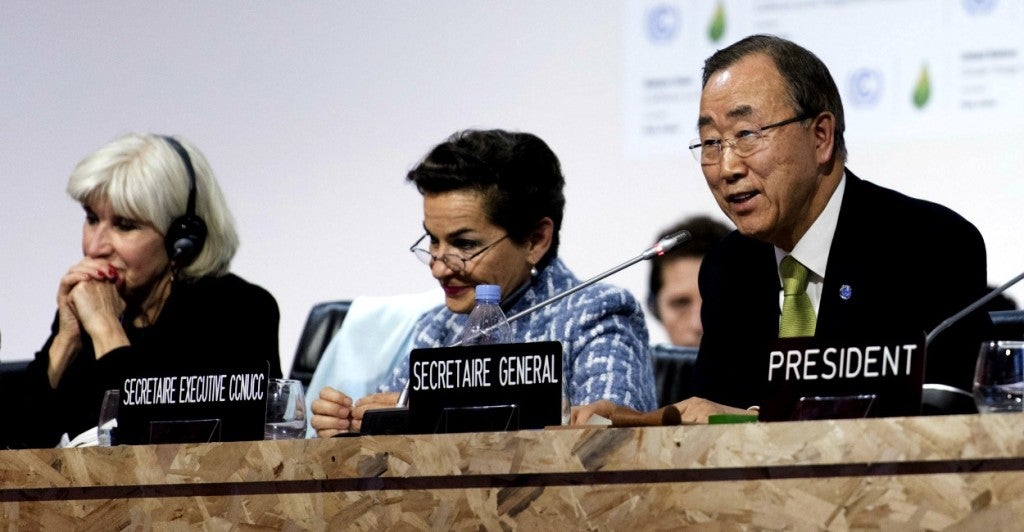On Dec. 18, 2015, the Palestinian Authority deposited its instrument of accession to the United Nations Framework Convention on Climate Change (UNFCCC). In accordance with Article 23(2) of the treaty, the Palestinians officially became the 197th party to the UNFCCC on March 17, 2016—ninety days after depositing their instrument of accession.
As was the case when the Palestinians joined the United Nations Educational, Scientific and Cultural Organization (UNESCO) in 2011, this event should trigger provisions in U.S. law that will prohibit any future U.S. funding to the United Nations Framework Convention on Climate Change.
The Obama administration requested $13 million for the UNFCCC in the 2017 fiscal year. It is unclear if the prohibition would also include much larger U.S. contributions to the Green Climate Fund, which is a mechanism under the UNFCC framework to assist developing countries in adapting to and mitigating the predicted consequences of climate change.
The UNFCCC is an international treaty negotiated in 1992 designed to facilitate efforts to arrest increases in greenhouse gas (GHG) emissions believed to contribute to global warming. It was the basis for the Kyoto Protocol and subsequent efforts such as the recently adopted Paris Agreement so that UNFCCC members will reduce their GHG emissions.
Current U.S. law contains two restrictions that prohibit U.S. funds from going to any international organization that admits Palestine as a member state.
Specifically, U.S. Code Title 22, Section 287e, states:
“No funds authorized to be appropriated by this Act or any other Act shall be available for the United Nations or any specialized agency thereof which accords the Palestine Liberation Organization the same standing as member states.” (Adopted as Public Law 101-246 in 1990.)
“The United States shall not make any voluntary or assessed contribution: (1) to any affiliated organization of the United Nations which grants full membership as a state to any organization or group that does not have the internationally recognized attributes of statehood, or (2) to the United Nations, if the United Nations grants full membership as a state in the United Nations to any organization or group that does not have the internationally recognized attributes of statehood, during any period in which such membership is effective.” (Adopted as Public Law 103-236 in 1994.)
The language in these provisions is clear and provides no waiver.
The U.S. has not provided any funding to UNESCO since 2011. However, the Obama administration has repeatedly urged Congress to amend the law to allow continued funding for UNESCO. Now that the Palestinians have joined the UNFCCC, which is central to the international climate change effort, the Obama administration can be expected to double its efforts to change the law.
The purpose of U.S. membership in international organizations is to advance American interests. When a U.N. body threatens key U.S. interests, the U.S. should send a clear signal about the ramifications.
Ending U.S. financial support to U.N. organizations that grant membership to the “State of Palestine” is an effective signal. If the U.S. eliminates, modifies, or otherwise weakens its own laws to allow U.S. contributions despite Palestinian membership, the U.S. will effectively encourage these organizations to admit the Palestinians as a member.
But this principle is also accompanied by the Obama administration’s deliberate effort to circumvent Congress in committing the U.S. to specific greenhouse gas reductions at the 21st Conference of Parties (COP21) to the UNFCCC meeting in Paris last year. With this added incentive, Congress should be even more resolute in dismissing efforts to change the law.
